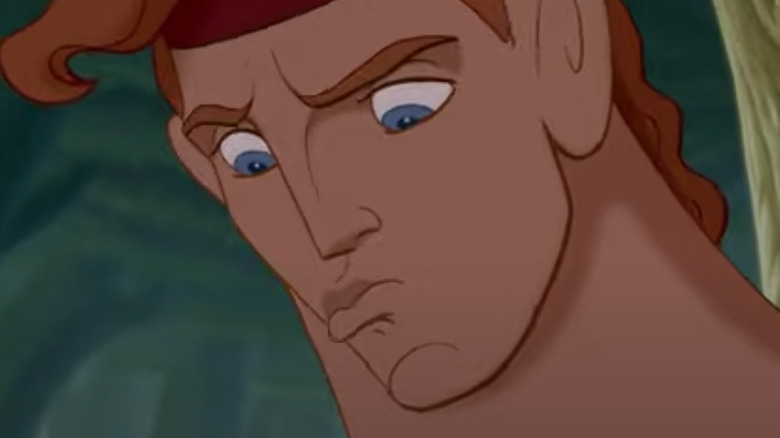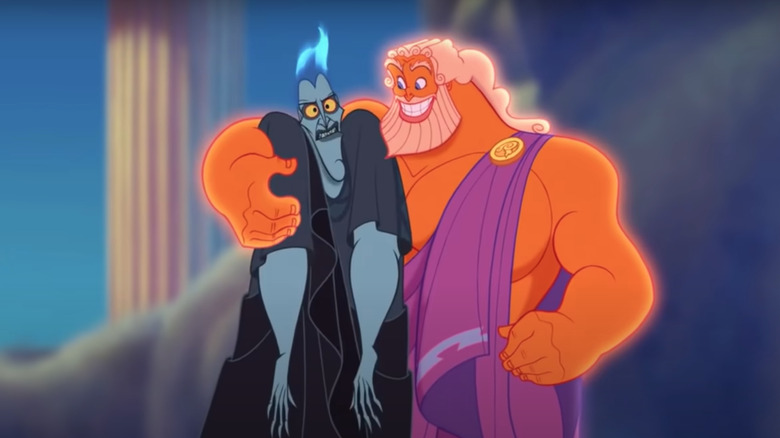The Hercules Controversy Disney Probably Doesn't Want You To Remember
Disney has enjoyed a love affair with Greek mythology since 1940, when the animation studio featured mythological characters in its experimental film "Fantasia." Set to the tune of Beethoven's Pastoral Symphony, the animated segment includes Zeus, Iris, Apollo, and a wine-guzzling Bacchus as they make merry (and cook up a thunderstorm): Unicorns, fauns, and centaurs all can be seen flitting about on the richly imagined Mount Olympus.
Over a half-century later, Disney would revisit the setting in 1997 for modern audiences — think less classical music and more, uh, Danny DeVito. As we all know today, "Hercules" dropped the placid, painterly tableaus of 1940s Disney in favor of pop-culture laden, snappy dialogue in the style of its nineties contemporaries like "The Lion King" and "Aladdin." Indeed, Robert Ebert compared James Woods' performance in "Hercules" to Robin Williams' adult-friendly, motor-mouthed Genie five years prior, which is no small compliment.
Today, "Hercules" may be an underrated gem for 1990s Disney aficionados, but not everyone thought the effort was Herculean. Indeed, when the film released, there was a "Hercules"-sized controversy that you might not remember.
Greek audiences accused Disney of misrepresenting their history
When "Hercules" hit Greece, it was swiftly blasted by Greek audiences, scholars, and critics. Indeed, Disney's reputation for taking creative liberties with historical characters (here's looking at you, "Pocahontas") went a bridge too far in their mythological adaptation, according to those critics (via Deseret News). "This film is not for Greece," said Yiannis Tzedakis, the director of antiquities for the country's Culture Ministry, who also added, "It is a distorted portrayal of the Herculean myth. And we Greeks, you know, have a thing about myths. We take them very seriously."
Vangelis Migdalis didn't mince words either. "Modern Greece never had much, it never had wealth or colonies. What it had always was history and legends and they have just been hideously ridiculed by Hollywood."
Disney did, in fact, alter the classic myths, presumably in the name of making the story palatable for child audiences. That Zeus is mythology's greatest philanderer — and Hercules is the love-child between him and the mortal Alcmene — may not have sat well with parents, nor would the half-God's history of murdering his wife and children (via Britannica). The changes, however, go beyond tweaks to the point of mischaracterization, especially when it comes to the relationship between Zeus and Hera.
Greek critics viewed the changes as an attempt at money-grabbing. "This is another case of foreigners distorting our history and culture just to suit their commercial interests," wrote a detractor for Athens' Adsmevtos Typos (via The Nation). That the film chose to use the character's Roman name rather than the Greek Heracles did not help matters, either.
Surely all wounds were healed when Dwayne Johnson played Hercules in 2014, right?

